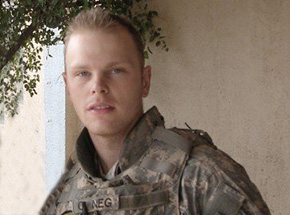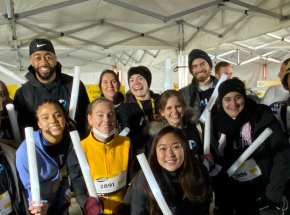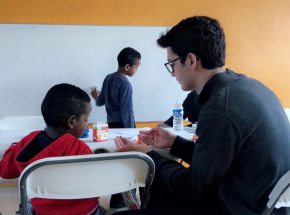- About AUP
- History of AUP
- Mission & Core Values
- Vision and Leadership
- AUP Recognition
- Alumni Success
- Campus Development
- Arts at AUP
- Policies & Guidelines
- Academics
- Undergraduate
- Graduate Programs
- MA in Diplomacy and International Law
- MA in Global Communications
- MSc in Human Rights and Data Science
- MA in International Affairs
- MA in International Affairs, Conflict Resolution, and Civil Society Development
- MSc in International Management
- MSc in Strategic Brand Management
- Find Your Thesis Advisor
- Previous Programs
- Cultural Program
- Faculty
- Summer School
- Research Centers
- The Center for Critical Democracy Studies
- Upcoming Events
- Research Projects
- Fellows’ Publications
- Publishing
- Curriculum
- Community
- Partnerships
- Visiting Scholars
- CCDS Highlights
- Atelier de Théorie Politique – Paris
- Critical Theory 101: Future Directions and New Challenges
- Martti Koskenniemi on “The Law of International Society: A Road not Taken”
- Academic Freedom Symposium
- Tocqueville Colloque 2023
- Violent Turns Conference
- Degenerations of Democracy
- DEMOS21 Inaugural Event
- What Demos for the 21st Century?
- The Paris Centennial Conference
- Justice Stephen Breyer
- Civic Jazz - The Launch of the Center
- Past Events
- FR
- The Center for Writers and Translators
- The George and Irina Schaeffer Center for the Study of Genocide, Human Rights and Conflict Prevention
- The Joy and Edward Frieman Environmental Science Center
- The Center for Media, Communication & Global Change
- The Center for Critical Democracy Studies
- Departments
- Academic Resources
- Academic Affairs
- Academic Calendar
- Academic Resource Center
- Library
- Registrar's Office
- Teaching and Learning Center
- Accessibility & Accommodation Services
- AI@AUP: A Campus-Level Initiative
- Quai D'Orsay Learning Commons
- Paris as Classroom
- ACE
- Admissions
- Student Life
- Campus
- Student Leadership & Involvement
- Paris
- Support Services
- Student Life Help Desk
- Student Accounting Services
- Student Immigration Services
- Student Grievance Procedure
- Diversity and Inclusion
- Health & Well-being
- Digital Student Handbook
- News
- Events
- AUP Giving
- Housing Offer for 2025-2026
- IT Services
- Alumni
- About AUP
- History of AUP
- Mission & Core Values
- Vision and Leadership
- AUP Recognition
- Alumni Success
- Campus Development
- Arts at AUP
- Policies & Guidelines
- Academics
- Undergraduate
- Graduate Programs
- MA in Diplomacy and International Law
- MA in Global Communications
- MSc in Human Rights and Data Science
- MA in International Affairs
- MA in International Affairs, Conflict Resolution, and Civil Society Development
- MSc in International Management
- MSc in Strategic Brand Management
- Find Your Thesis Advisor
- Previous Programs
- Cultural Program
- Faculty
- Summer School
- Research Centers
- The Center for Critical Democracy Studies
- Upcoming Events
- Research Projects
- Fellows’ Publications
- Publishing
- Curriculum
- Community
- Partnerships
- Visiting Scholars
- CCDS Highlights
- Atelier de Théorie Politique – Paris
- Critical Theory 101: Future Directions and New Challenges
- Martti Koskenniemi on “The Law of International Society: A Road not Taken”
- Academic Freedom Symposium
- Tocqueville Colloque 2023
- Violent Turns Conference
- Degenerations of Democracy
- DEMOS21 Inaugural Event
- What Demos for the 21st Century?
- The Paris Centennial Conference
- Justice Stephen Breyer
- Civic Jazz - The Launch of the Center
- Past Events
- FR
- The Center for Writers and Translators
- The George and Irina Schaeffer Center for the Study of Genocide, Human Rights and Conflict Prevention
- The Joy and Edward Frieman Environmental Science Center
- The Center for Media, Communication & Global Change
- The Center for Critical Democracy Studies
- Departments
- Academic Resources
- Academic Affairs
- Academic Calendar
- Academic Resource Center
- Library
- Registrar's Office
- Teaching and Learning Center
- Accessibility & Accommodation Services
- AI@AUP: A Campus-Level Initiative
- Quai D'Orsay Learning Commons
- Paris as Classroom
- ACE
- Admissions
- Student Life
- Campus
- Student Leadership & Involvement
- Paris
- Support Services
- Student Life Help Desk
- Student Accounting Services
- Student Immigration Services
- Student Grievance Procedure
- Diversity and Inclusion
- Health & Well-being
- Digital Student Handbook
- News
- Events
- AUP Giving
- Housing Offer for 2025-2026
- IT Services
- Alumni
Alumna
Kristina Keenan ’08
Major in International and Comparative Politics
Kristina with the U.S. Military in Bosnia.
In December 2003, I climbed out of an up-armored Humvee and trudged through the snow wearing heavy Army boots, a Gore-Tex field jacket, a thick metal flak vest, Kevlar, and carrying an M16 rifle. I was 22-years-old and people called me “Sergeant Keenan”. I followed my team leader to a rickety shack where we were greeted by two Bosnian officers. We were in the mountains outside of Sarajevo, surrounded by bombed-out houses where people were still living- burning garbage for heat, the source of the thick morning smog. We sat in the Bosnian military shack, an unheated room with a table, some chairs, and a coffeemaker. My team leader asked one of the officers how things were going, while the other poured us shots of Rakia. The men spoke together for about 10 minutes with the help of an interpreter, drinking plum brandy, while I simply soaked in the moment, a girl from small-town Minnesota, trying to figure out where she was.
On the drive back to base, we passed a family roasting a wild pig in the front yard. They waved for us to join them, so we sat on plastic chairs as they served us bitter Turkish coffee and told us of their troubles. The father said, “Things are not going well for us. There is a lot of tension among the ethnic groups as one has become more powerful politically. People from the other ethnic groups can’t get jobs, can’t support their families because of it.” A soldier from my team exclaimed, “Well, in America, we have many different kinds of people, from all religions, and we find a way to all get along. You just need to find a way to get along!” I was mortified by his comment but six months later, I was the team leader, and my understanding of local sensitivities helped me successfully conduct over 100 interviews. People opened up to me about the horrors of war, genocide, and the aftermath. I had been sent to Bosnia as a Peacekeeper and I considered this crucial to the learning experience.
That was my student experience at AUP in a nutshell – a culturally rich, international learning environment where my beliefs were constantly tested and challenged.
This was my life for six years until I found myself at AUP, surrounded by high fashion and wine and cheese under the Eiffel Tower. The culture shock was almost unbearable, but I quickly found my place in my political science classes. With the intellectual guidance of Professors Peter Hägel, Oleg Kobtzeff, Steven Ekovich, and Terrence Murphy, I began to make sense of what I had witnessed in the field, researching and studying the conflict in Bosnia from an academic perspective. During one heated discussion in my World Politics class, I carelessly noted that the U.S. had “bailed out” Europe by intervening in the Yugoslav war, completely offending another student who had been living in Belgrade when American planes bombed his city as a child. He burst out, “You stupid American! I bet you’ve never even been to the Balkans!” He was shocked that I had. Class ended and we apologized, agreeing that we’d both exaggerated, and then continuing the discussion, curious about each other’s stories. This, in a nutshell, was my student experience at AUP: a culturally rich, international, learning environment, where my beliefs were constantly tested and challenged.
The combination of life experiences in the military and the international education I received at AUP, prepared me well for my future, whether I was working in communications, marketing or fundraising, living and working in India, volunteering with veterans in Paris, or pursuing a master’s in human rights and humanitarian action.
Related
-

Matthew Ness ’09
Alumnus
Read MoreMatthew Ness ’09
Alumnus
AUP impressed me immediately as the right place to develop my interests.
-

Course des Lumières
Paris as Classroom
Read MoreCourse des Lumières
Paris as Classroom
Participants are provided with a light-up baton to carry throughout, symbolizing the movement’s aim of “lighting up the night against cancer.”
-

Campus UNICEF
Paris as Classroom
Read MoreCampus UNICEF
Paris as Classroom
The club organizes regular volunteering opportunities for students in Paris.
